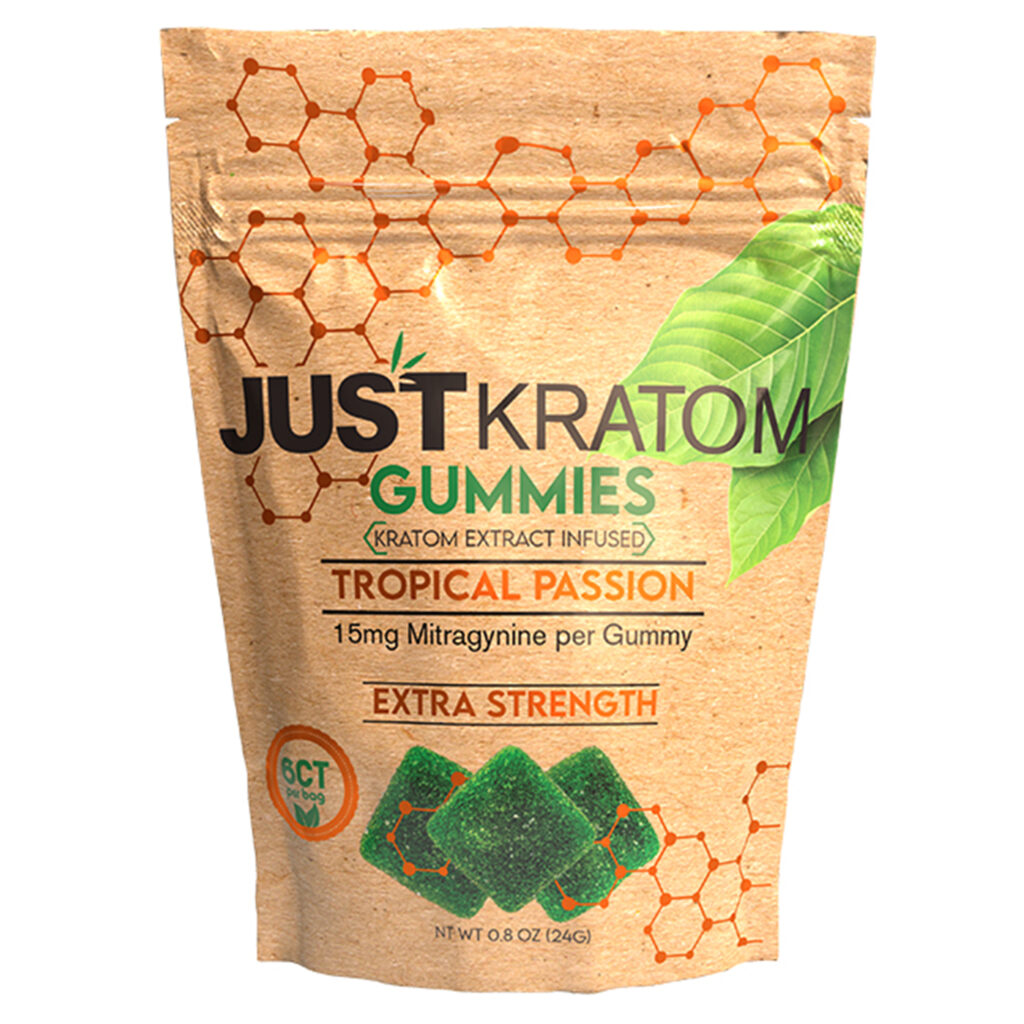Understanding The Risks Of Overusing Kratom Gummies
Physical Health Risks
Kratom gummies, a popular alternative pain reliever, offer an enticing way to manage discomfort. However, like any substance that affects the central nervous system, they come with potential physical health risks. Understanding these risks is crucial before incorporating kratom gummies into your wellness regimen.
Gastrointestinal Issues
While kratom gummies may seem like a convenient and discreet way to consume kratom, overuse can lead to a range of physical health risks, including gastrointestinal issues.
Consuming excessive amounts of kratom can irritate the stomach lining, leading to nausea, vomiting, diarrhea, and abdominal cramps. Kratom’s effects on the digestive system may also disrupt normal bowel function, causing constipation or loose stools.
Prolonged or heavy use of kratom gummies can potentially contribute to more serious gastrointestinal problems such as ulcers, irritable bowel syndrome (IBS), and inflammation of the digestive tract.
Cardiovascular Problems
While kratom gummies may offer temporary relief from pain or discomfort, excessive consumption can pose significant risks to your physical health, particularly your cardiovascular system.
Kratom’s effects on the heart include elevated blood pressure and heart rate, potentially leading to arrhythmias and increased strain on the heart muscle.
Long-term overuse may contribute to hypertension, a major risk factor for stroke, heart attack, and other cardiovascular diseases.
Liver Damage
Kratom gummies offer a convenient and discreet way to consume kratom, but like any substance, overuse can lead to health risks, including liver damage.
- The active compounds in kratom, mitragynine and 7-hydroxymitragynine, can put a strain on the liver when consumed in excessive amounts.
- Long-term or high-dose kratom use has been linked to cases of acute liver injury and elevated liver enzymes, indicating potential damage.
- Individuals with pre-existing liver conditions are particularly vulnerable to kratom-induced liver harm.
Psychological Effects
Kratom, a tropical evergreen tree native to Southeast Asia, has gained popularity as a natural remedy for pain relief and energy boosting. However, its increasing availability in processed forms like gummies poses potential risks. Understanding the psychological effects of overusing kratom gummies is crucial for mitigating these risks and ensuring responsible consumption.
Addiction and Dependence
While kratom gummies might seem like a convenient and natural pain management option, their effects on the psychological and physiological systems can be complex and potentially addictive. Kratom contains compounds that act as opioid agonists, binding to receptors in the brain similar to morphine or heroin. This interaction can lead to feelings of euphoria, relaxation, and pain relief, but prolonged use can result in tolerance, dependence, and withdrawal symptoms.
Like any substance with potential for abuse, kratom gummies carry the risk of addiction. Regular use can alter brain chemistry, leading to cravings and compulsive seeking behavior. Physical dependence develops as the body adapts to the presence of kratom, requiring increasing amounts to achieve the same effects. Withdrawal symptoms can be unpleasant and include nausea, vomiting, diarrhea, muscle aches, anxiety, and insomnia.
Withdrawal Symptoms
Beyond physical health, overuse of kratom gummies can also have significant psychological effects. Regularly consuming large doses of kratom can lead to dependence and addiction. As the body adapts to the presence of kratom, it requires increasingly larger amounts to achieve the same desired effect, a phenomenon known as tolerance.
This cycle of increasing dosage and developing tolerance can result in withdrawal symptoms when kratom use is abruptly stopped or reduced. These symptoms can include anxiety, irritability, insomnia, restlessness, muscle aches, and even nausea and vomiting.
Mental Health Concerns
Beyond physical health concerns, the overuse of kratom gummies can have profound psychological effects and contribute to mental health issues.
- Kratom’s stimulant properties can lead to anxiety, restlessness, and insomnia when consumed in excess.
- The potential for dependence and withdrawal symptoms further complicates the mental well-being of those who overuse kratom gummies.
- Individuals may experience mood swings, irritability, depression, or even psychosis as their bodies struggle to adjust to the absence of kratom.
It’s important to remember that kratom, while marketed as a natural alternative, can have serious consequences for both physical and mental health when misused.
Drug Interactions and Complications
Understanding the risks associated with overusing kratom gummies is crucial for anyone considering incorporating them into their wellness routine. While these gummies may offer a tempting solution for pain relief, excessive consumption can have serious consequences for your health.
Interactions with Medications
Kratom’s interaction with medications can be complex and potentially dangerous. It can alter the way your body processes other drugs, leading to unexpected side effects or reduced effectiveness of the medication.
For instance, kratom’s ability to act as a stimulant and depressant can interfere with medications used to treat anxiety, depression, or sleep disorders. It may also interact with opioid painkillers, potentially increasing the risk of overdose.
Kratom can impact the way your liver metabolizes medications, leading to higher drug levels in the bloodstream and an increased risk of toxicity. It’s essential to consult a healthcare professional about any potential interactions between kratom and medications you are currently taking.

Risk of Overdose
Drug interactions can significantly impact the effects of kratom gummies and potentially lead to dangerous consequences. Kratom’s interaction with other medications, particularly those affecting the central nervous system like opioids, benzodiazepines, or antidepressants, can result in additive sedative effects, increasing the risk of respiratory depression, overdose, and even death.
Individuals taking blood thinners should exercise caution when consuming kratom gummies as it may increase the risk of bleeding. Furthermore, kratom can interfere with the metabolism of certain drugs, altering their effectiveness or leading to toxic levels in the body.
It’s crucial to consult with a healthcare professional before combining kratom gummies with any medications to ensure safety and prevent potentially harmful interactions.
The risk of overdose with kratom gummies is real, although it may be less common than with other opioids. However, exceeding recommended dosages or consuming contaminated products can lead to serious health complications.
Overdose symptoms may include nausea, vomiting, respiratory depression (slowed breathing), confusion, seizures, coma, and even death.
It’s essential to start with a low dose of kratom gummies and gradually increase it as needed while closely monitoring for any adverse effects.
If you suspect an overdose, seek immediate medical attention.
Legal Considerations
The increasing popularity of kratom gummies as a pain reliever has raised important legal concerns. While these products may seem like an innocuous alternative to traditional pain medications, their legality varies significantly across jurisdictions.

Kratom Legality
The legal status of kratom varies significantly around the world. In some countries, it is completely banned, while in others, it is legal but heavily regulated. The United States has not implemented a nationwide ban on kratom, but several states have taken steps to restrict or prohibit its sale.
The legal landscape surrounding kratom is complex and evolving, making it essential for individuals considering its use to research the specific laws in their jurisdiction.
Potential for Mislabeling or Contamination
Legal considerations surrounding kratom are complex and vary significantly by location. In some countries and states, kratom is legal and readily available, while in others it is banned or heavily restricted. This lack of uniformity creates challenges for manufacturers, distributors, and consumers alike.
The unregulated nature of the kratom market also raises concerns about mislabeling and contamination. Because kratom products are not subject to the same rigorous quality control standards as pharmaceuticals, there is a risk that gummies may contain inaccurate dosages of active compounds or be adulterated with harmful substances.
- Improper labeling can mislead consumers about the potency of the product, leading to accidental overdose.
- Contamination with heavy metals, pesticides, or other toxins can pose serious health risks.
Just Kratom’s top-rated Kratom Gummies
Read what’s fully explained
Browse the complete post
- Understanding The Risks Of Overusing Kratom Gummies - November 5, 2025
- The Science Behind PLLA And Its Use In Brazilian Bum Lifts - November 4, 2025
- THC Soda And Coffee: Can You Mix Caffeine With Cannabis? - November 2, 2025

